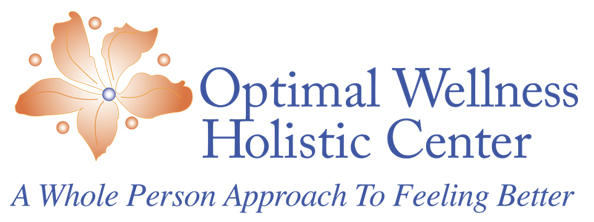Top 6 Nutrients to Boost Your Immune System for Prevention and Fast Recovery
Whether you decide to get the vaccine or not, the most important thing to do is to boost your immune resilience. The stronger your immune system, the faster you will recover from getting sick. Proper nutrition, adequate sleep, exercise, happy thoughts, stress management, and healthy relationships all improve immune function. Taking a closer look at the nutrition aspect, here are my top 6 recommended nutrients for boosting immune resistance. (Please consult your health provider before adding any new supplements.)
1.Vitamin D3
Vitamin D3 (not to be confused with Vitamin D2, the inactive form) rises to the top of the list. Vitamin D3 is important for the immune system, bone health, brain and heart health etc. Studies show that adequate Vitamin D helps lower the risk of COVID-19 infections and severity.
Vitamin D is created in your skin in response to sun exposure. Most people should aim to get 15-20 minutes of daily sun exposure. The best natural sources of Vitamin D3 in food are fatty fish (salmon, sardines, herring, mackerel), raw cheese, egg yolks, and liver. However, it’s difficult to obtain adequate Vitamin D from the sun and food, especially if you’re already deficient. You can get a blood test to know what your level is. The optimal range is 50-80 ng/mL. 50 ng/mL is ok if you’re relatively healthy, but 60-80+ is the optimal range, especially if you suffer from chronic issues.
– If you are sick, take 10,000-50,000 IU of Vitamin D3 for 4 days, and then drop down to 10,000 IU for 10 days. For maintenance, take 5,000 IU per day.
It’s important to take Vitamin A (5,000-10,000 IU), Vitamin K2 MK7 (100mcg-200mcg) and Magnesium with Vitamin D3 because they work together.
I recommend a chelated form of magnesium (like magnesium glycinate), which the body absorbs more effectively. You can calculate what you need: multiply your weight (in pounds) by 3 or 4 to compute the approximate dosage range in milligrams. The amount depends on the person, but this method provides a good estimate for the average individual. For example, 110 lb x 3 = 330 mg; 110 lbs x 4 = 440 mg of magnesium. Thus, a person with a weight of 110 lb should take 330–440 mg of magnesium per day.
– Food sources of magnesium: raw cacao, pumpkin seeds, cashews, and leafy greens
– Food sources of vitamin K2: grass-fed meat, dairy, egg yolk, goose liver, aged cheese, and natto (fermented soy)
2.Vitamin A
Vitamin A is also an anti-inflammatory vitamin and has a critical role in enhancing immune function.
– Food sources of Vitamin A include organ meats (especially liver), as well as egg yolks, cheese, butter, and ghee. If you have 3 oz of liver a few times a week, you probably don’t need to supplement. Plant sources (sweet potatoes, carrots, squash, and red peppers) provide beta carotene, which must be converted in the body to Vitamin A. This conversation is inefficient in most people.
– If you are sick, take 50,000 IU twice a day for 5 days. For maintenance, take 5,000 IU–10,000 IU per day.
3.Vitamin C
Vitamin C plays a role in immune-modulating effects, controls inflammation, and helps the body recycle its strongest antioxidant, glutathione.
– Food sources of Vitamin C are bell peppers, strawberries, citrus fruits, and broccoli.
– If you are sick, take 2–4g. For maintenance, take 500 mg–1 g per day.
4. Zinc
Zinc helps boost the immune system and decreases inflammation. A deficiency of zinc can cause a loss of diminished smell and taste, hair loss, or fatigue.
– Food sources are pumpkin seeds, oysters, red meat, poultry, nuts, beans.
– If you are sick, take 80–90 mg. For maintenance, take 30–40 mg per day.
5. Glutathione
Glutathione is the strongest antioxidant in the body. It helps balance the immune system and supports energy, brain function, and liver detox. N-acetylcysteine (NAC) helps the body form glutathione.
– Food sources of glutathione include asparagus, avocados, okra, and spinach. A combination of these foods helps make glutathione: cruciferous vegetables (cabbage, cauliflower, broccoli), foods high in Vitamin C, foods high in selenium (Brazilian nuts, beans, sunflower seeds, brown rice), and protein.
– If you are sick, take 1,000 mg or more. For maintenance, take 500 mg 1–2 times per day.
– If you do not have an absorbable form of these supplements, I recommend a number of trusted brands. You’re welcome to check them out here on my Fullscript online dispensary. Click “Protocol” after you register: https://us.fullscript.com/protocols/drloan-immune-support
6. Prebiotics/Probiotics.
You gut houses 70–80% of your immune system. You need healthy gut flora and bacteria to keep the immune system healthy. Most people’s gut flora is destroyed by alcohol, soda, sugar, processed foods, stress, antacids, and antibiotics. Eating prebiotics (such as fibers from a variety of vegetables, fruit, nuts, seeds, and beans) feeds the good bacteria. Eating fermented foods (sauerkraut, kim chi, miso, and kefir) helps provide beneficial bacteria. If you don’t eat fermented foods or a mixture of fibers, you can benefit from a probiotic and prebiotic supplement.
If you consistently incorporate these nutrients and other healthy lifestyle factors, you will build a strong immune system and significantly reduce your chances of getting sick.
